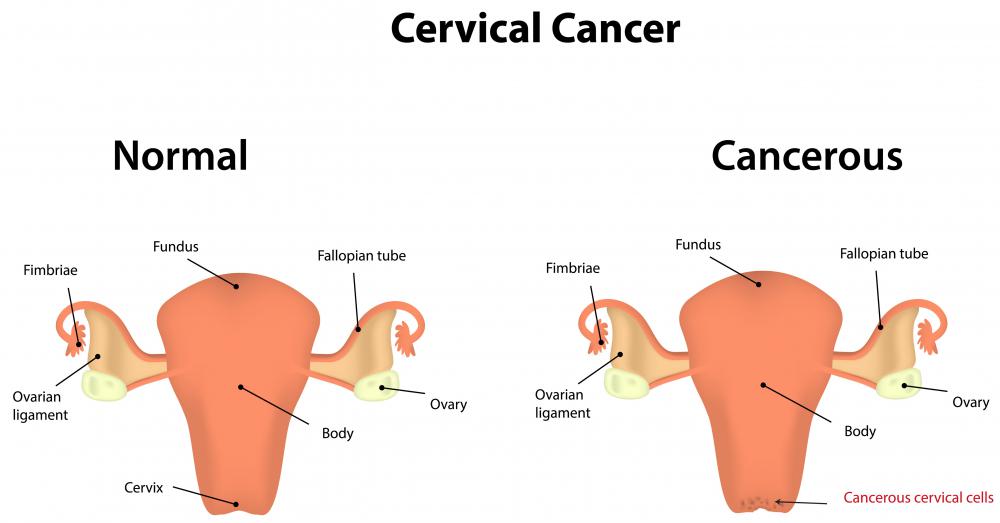At TheHealthBoard, we're committed to delivering accurate, trustworthy information. Our expert-authored content is rigorously fact-checked and sourced from credible authorities. Discover how we uphold the highest standards in providing you with reliable knowledge.
What are the Pros and Cons of a Hysterectomy for Cervical Cancer?
There are variety of pros and cons of a hysterectomy for cervical cancer, and patients should be thoroughly informed of all of them before they have the procedure performed. It is not generally recommended to do a full hysterectomy as a first line of defense for cervical cancer because the cons often outweigh the benefits, and can include higher risk of side effects, infection at the incision site, and the inability to have children once the operation is done. The primary benefit of having it done is that it can save lives when all other options have failed.
The use of hysterectomy for cervical cancer is very rare unless the cancer has moved into the uterus or ovaries. When it is still confined to the cervix, treatments are generally limited to freezing off the harmful cells, chemotherapy, and sometimes radiation. Thanks to routine pap tests in most industrialized nations, progressed stages of cervical cancer are becoming more and more rare.

The cons of performing a hysterectomy for cervical cancer are many, especially for younger women who do not have children. When the uterus, ovaries, and cervix are all removed, there is no longer any way for a woman to bear a child. For this reason, hysterectomy is reserved as a last resort for women in their childbearing years. Older women may opt to have surgery over other treatment methods to prevent cancer from recurring, but very early staged cancer may still be better treated using a less invasive approach.

Other cons of a hysterectomy for cervical cancer include the risk of infection at the incision site and sometimes death related to anesthesia. This is very rare when surgery is performed with a well-trained physician and is most common in developing countries. A full hysterectomy also requires a recovery period, which could mean reduced time at work and more time in the hospital.

Some women may also feel a sense of loss at any age after a hysterectomy. Losing ones fertility can be a struggle for some, as well as entering menopause earlier than imagined. Common menopausal symptoms generally begin once the hysterectomy is complete, and forces women to cope with no only surviving cancer but also with hormonal issues and a changed body.

Pros of hysterectomy for cervical cancer treatment are limited to very severe cases, and include prolonged life expectancy in those with advanced cases of the disease. When other therapies have failed or the illness is too progressed for them to be effective, hysterectomy may be the only chance of survival. For older survivors, it may also be a relief to no longer worry about getting pregnant once surgical recovery is complete.
AS FEATURED ON:
AS FEATURED ON:















Discuss this Article
Post your comments